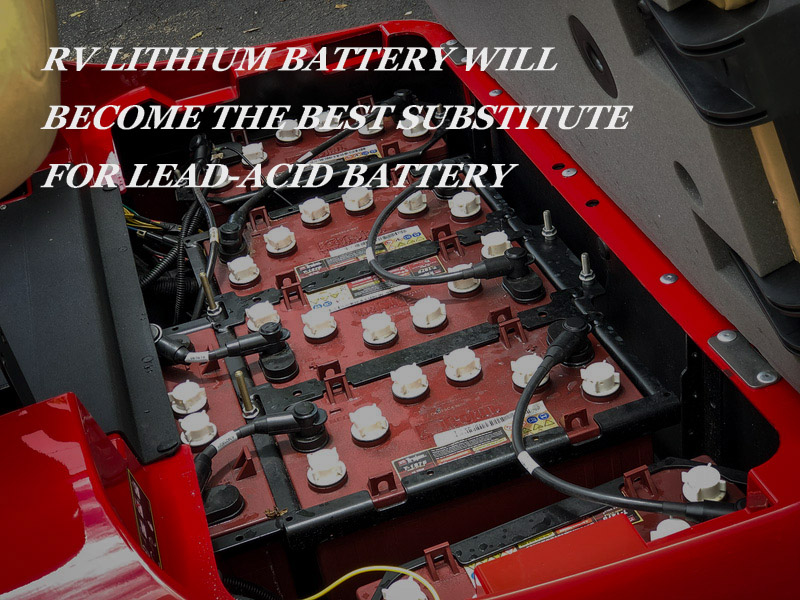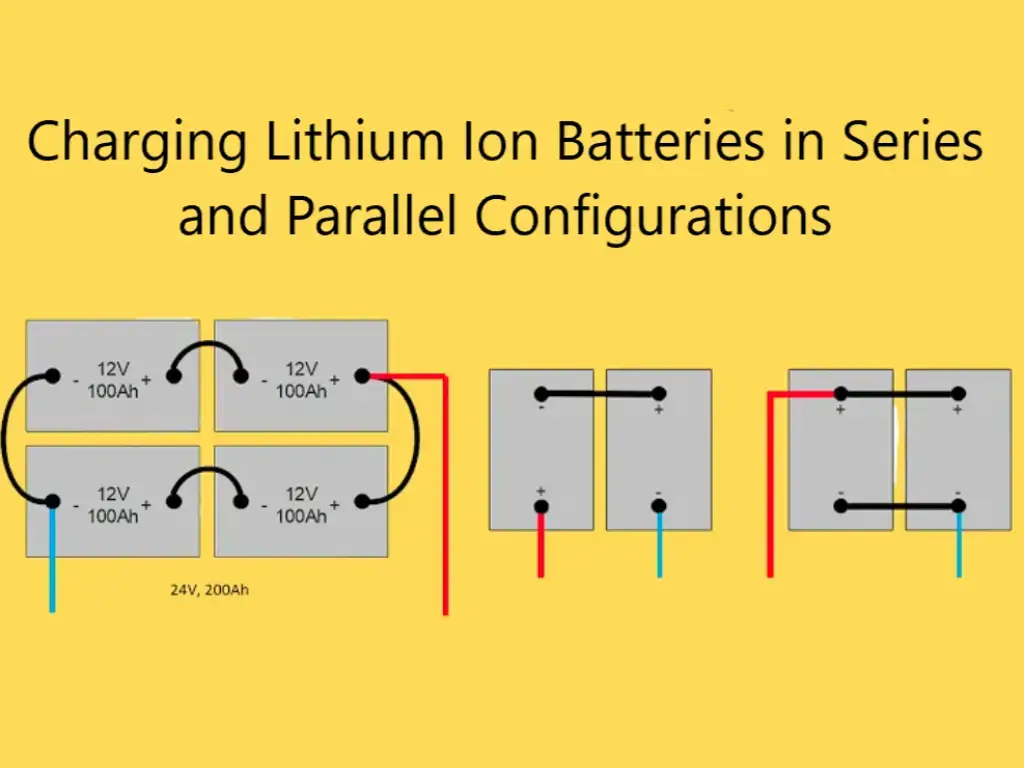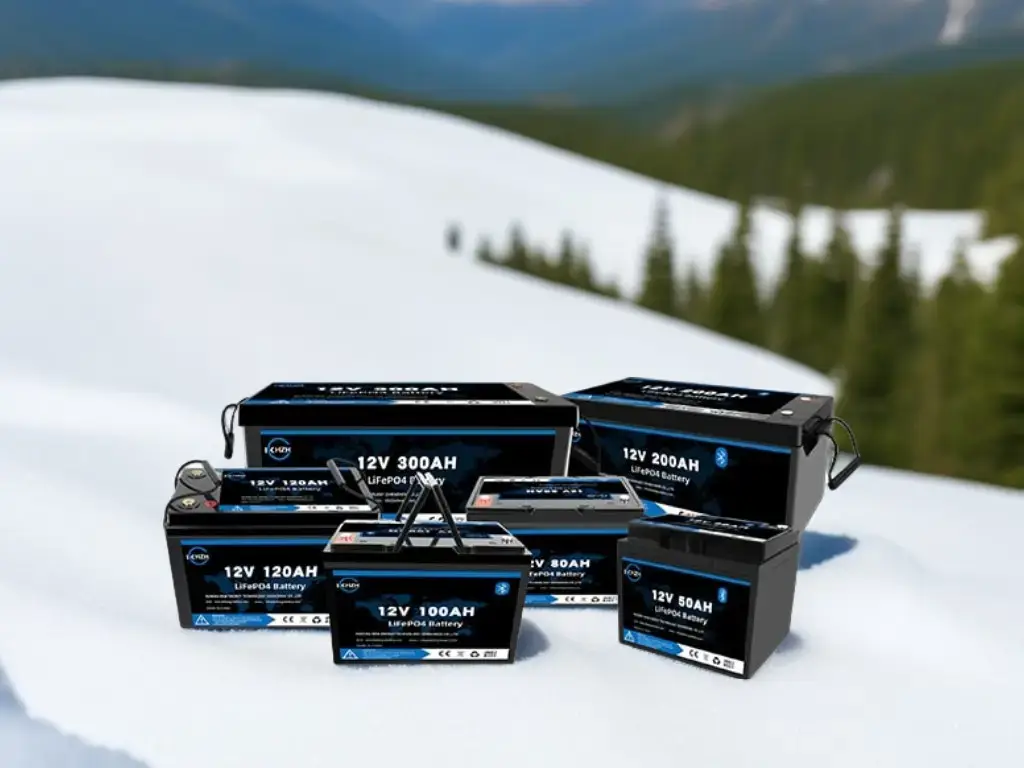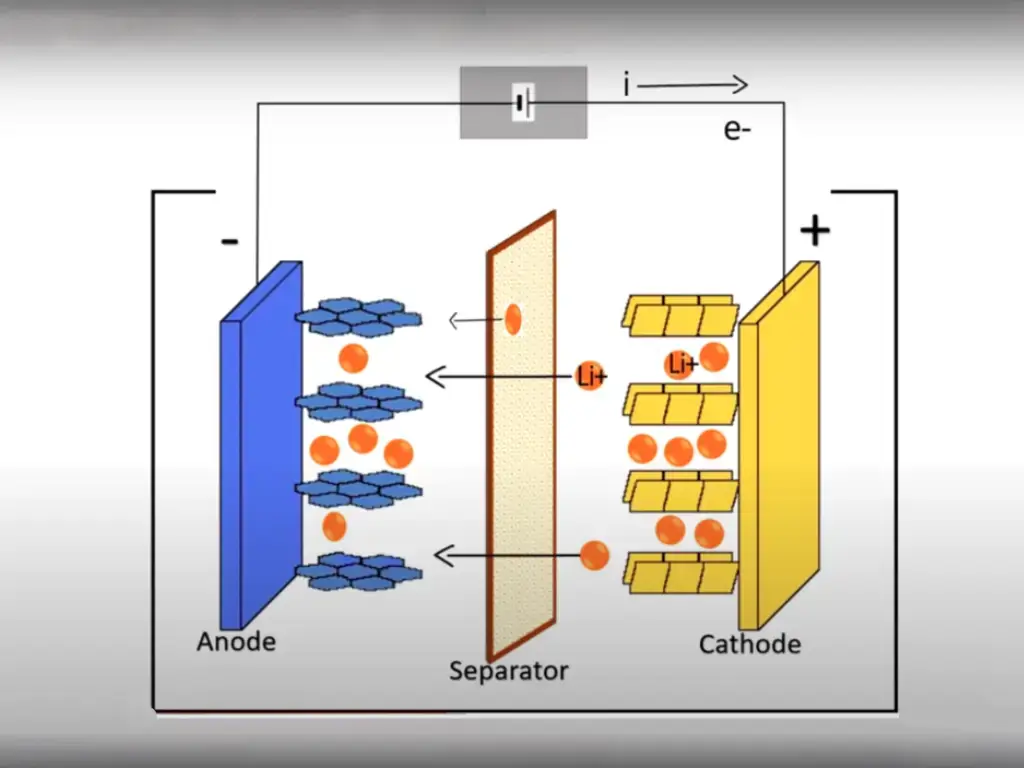Perhaps when you first buy an RV battery, you will come across two options,RV lead-acid battery and RV lithium battery. You may not know much about them, but this article can tell you the difference between RV lithium batteries and lead acid batteries. Maybe it will help you to buy RV batteries.

The difference between RV lithium battery and lead-acid battery
Both provide deep cycle power for your RV, and they are both designed to provide deep discharge and cycle charging. But in contrast, lead-acid batteries have a more favorable price, which is very attractive. But for you who buy RV batteries, I prefer to buy long-lasting RV lithium batteries. (Please see the description below you may understand what I am talking about)
What is a lead acid RV battery?
Lead-acid batteries are a fairly old technology that use flat plates of lead immersed in an electrolyte to store charge and provide electricity. It is widely used in cars and RVs. With the development of technology, different lead-acid deep-cycle RV batteries, including flooded lead-acid batteries, gel batteries, and absorbed glass mat batteries have also been developed one after another, becoming good alternatives.
Flooded lead-acid battery: The lead plate is completely covered with liquid electrolyte, but the price is quite cheap. But they need to avoid cold temperatures, top up regularly with distilled water, and avoid spilling electrolyte from the battery. The flooded lead-acid battery is bulky and has a short service life. Lead-acid batteries may release toxic gases during venting. With many limitations, a new and better alternative is needed, and they are gel batteries and absorbent glass mat batteries.
Gel Batteries: Batteries use semi-solid gels instead of liquid electrolytes, they are completely sealed, and these properties solve the problem of exhaust gas pollution and electrolyte spillage.
Absorbent Glass Mat Batteries: They are also known as AGM batteries, the batteries use a fiberglass mat to absorb the electrolyte, which solves the problem of electrolyte spillage while allowing them to complete the battery faster and discharge deeper (up to 80%) and resistant to off-gassing and freezing temperatures.
What is an RV Lithium Battery?
Lithium battery technology, yes, the mobile phone you use is a lithium battery. It is divided into lithium ion battery and lithium metal battery. At present, lithium iron phosphate battery is widely used in RV lithium battery and the technology is more mature, abbreviated as LiFePO4 battery or LFP battery.
LiFePO4 batteries use lithium iron phosphate as the cathode material and graphitic carbon electrode and metal backing as the anode. Compared with other lithium-ion batteries such as nickel-manganese-cobalt (NMC) and nickel-cobalt-aluminum (NCA), it has a lower operating voltage. Moreover, LiFePO4 batteries contain iron in natural abundance and are easier to extract.
LFP does not contain nickel or cobalt, which makes lithium iron phosphate low-cost, non-toxic, thermally stable, and safe. The chemical properties are well recognized by the market.
Of course, the LFP battery also has its shortcomings. Although it has a much higher energy density than lead-acid batteries, it still lacks performance compared with other lithium-ion batteries. But with the efforts of several generations, LFP batteries have also continued to improve, starting the pace towards electric vehicles. At present, LiFePO4 batteries are widely used in off-grid, RV, golf cart, marine and so on.
LiFePO4 battery VS lead-acid battery
- LiFePO4 batteries have high energy density and store more energy in a smaller space.
- A flat discharge curve can help it deliver longer current
- The lower self-discharge rate allows the battery to be stored longer.
- No pollution exhaust gas effect, no maintenance required.
- It is stable and safe, and there is no need to worry about the danger of explosion due to excessive temperature.
- Longer deep cycle times, the lifespan is 5-10 times (4000-7000 times) that of lead-acid batteries (500-1000 times).
- Deeper discharge depth, the maximum discharge can reach 100%, while even the most advanced AGM lead-acid batteries can only discharge 60%-80%.
- Faster charging, with several times the fast charging time of lead-acid batteries, it can be fully charged in an hour.
Cost comparison
Perhaps there is no such attractive price as lead-acid batteries in RV lithium batteries, but in the long run, RV lithium batteries are always the big winners. Because the lead-acid battery may need to be replaced after a few years.
For the RV lithium battery, it can be used for up to ten years or more. At the same time, the built-in BMS battery management will help you to better observe the usage of the power, you don’t even need to Spend more time on your battery maintenance because it can be simpler.
Summarize
Lead-acid batteries may have been with you for a long time, but in order to obtain lighter, more efficient and more powerful lithium batteries, I believe you will make a choice. Yes, it’s time to say goodbye to your old friend because its new replacement friend has arrived!





3 thoughts on “RV lithium battery will become the best substitute for lead-acid battery”
The clarity and precision of your writing are truly commendable.
Your writing is truly inspired. Your article is filled with original thoughts and fresh perspectives that leave the reader feeling enlightened and refreshed.
Your words dance on the page, painting a vivid tapestry of emotions and ideas. The depth of your writing is truly awe-inspiring, leaving a lasting impact on anyone fortunate enough to read your work.